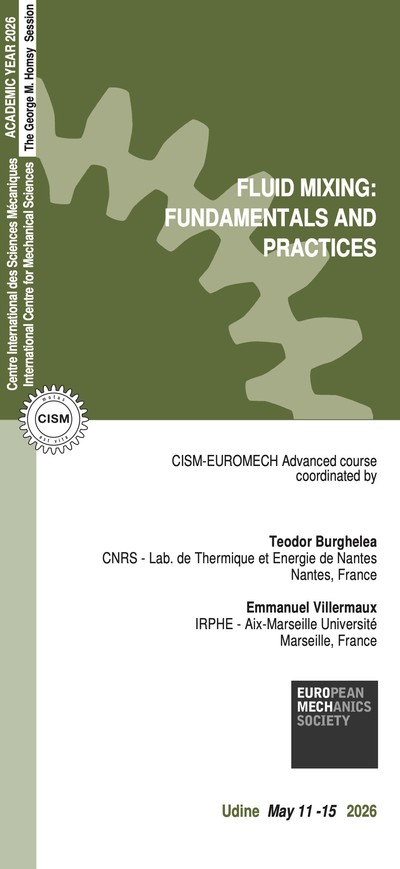Broad Context: Future industrial development of the World’s Nations has to face the great challenges of our time, such as climate change, population growth, scarcity of primary resources, unquenchable demand for energy etc., by securing a sustainable handling of the resources of our planet. The main target is to secure the wellbeing and happiness of future generations. From this point of view the transition from fossil fuels to renewables is a key development step, but it also implies a disruptive transformation of the energy services system with political and economic implications; and it will be a long and difficult process.
Objective of the course: The main objective is to illustrate the advances in the technologies and processes for generating renewable electricity (from solar and wind energy, biomass etc.), the options to manage the power flow and store electricity, and the conversion into storable chemicals, such as hydrogen and other synthetic fuels. The interconversion between electricity and hydrogen is in fact a key element in distributing renewable energies wherever needed with the highest flexibility and security for the energy system.Topics of the course are:
– Hydrogen economy and circular economy: relationship, social and economic aspects and issues.
– Production of Hydrogen from renewable resources: electrolysers, solar thermal cycles, photocatalysis, bio-H2.
– Materials for the production and storage of H2.
– H2 and hydrogen-based fuels for fuel cell technologies (stationary and automotive applications).
– Decarbonisation and H2 economy.
– Comparison and competitiveness evaluation with traditional and alternative technologies.
The course has been conceived in the context of the European TeacHy project, which has the mission of building a cluster of universities and other educational institutions coordinating and developing educational programmes on Fuel Cells and Hydrogen at the qualification level of undergraduate, graduate and PhD training. The course addresses the new generation of engineers (BS/MS and PhD student), scientists, economists and professionals involved in the future energy sectors. The learning outcomes of the topics covered will be verified by class tests and a final exam.
2 lectures on:
Towards a zero-carbon society: CO2 utilization technology and H2 uses; Membranes for the purification of H2.
2 lectures on:
International developments towards a hydrogen economy; Energy system cost analyses and comparison for electricity and hydrogen.
2 lectures on:
Fundamental of H2 safety; H2 safety design tools.
2 lectures on:
Power to X systems based on hydrogen; Energy storage by power to gas and power to power systems.
4 lectures on:
Renewables and energy storage strategies; H2 and fuel cell technology; FC and biomass utilisation; Energy security and hydrogen – societal implications.
4 lectures on:
H2 production technologies using solar energy and other renewable energy sources; Thermochemical H2 production; Thermochemical water splitting.
3 lectures on:
Electrolysers: Principles and fundamentals; Electrolysers: applications; Materials for hydrogen storage.
The course is manly addressed to doctoral students and it is offered in a hybrid format giving the possibility to attend the course also by remote (on Microsoft Teams platform).
"In presence" places are limited and assigned on first come first served basis.
The registration fees are:
- Participation in presence, 400.00 Euro + VAT*
This fee includes a complimentary bag, four fixed menu buffet lunches, coffee breaks and downloadable lecture notes.
- Participation online, 340.00 Euro + VAT*
This fee includes downloadable lecture notes.
Applications should be made on-line through our web site:https://www.cism.it/en/activities/courses/E2101/
Deadline for application is August 17th, 2021.
A message of confirmation will be sent to accepted participants. Information about travel and accommodation is available on our web site, or can be mailed upon request.
A limited number of rooms is available at our Guest House at the rate of Euro 30,00 per person/night.
Applicants may cancel their course registration and receive a full refund by notifying CISM Secretariat in writing (by email) no later than two weeks prior to the start of the course.
If cancellation occurs less than two weeks prior to the start of the course, a Euro 50,00 handling fee will be charged.
Incorrect payments are subject to Euro 50,00 handling fee.
* Italian VAT is 22%.





